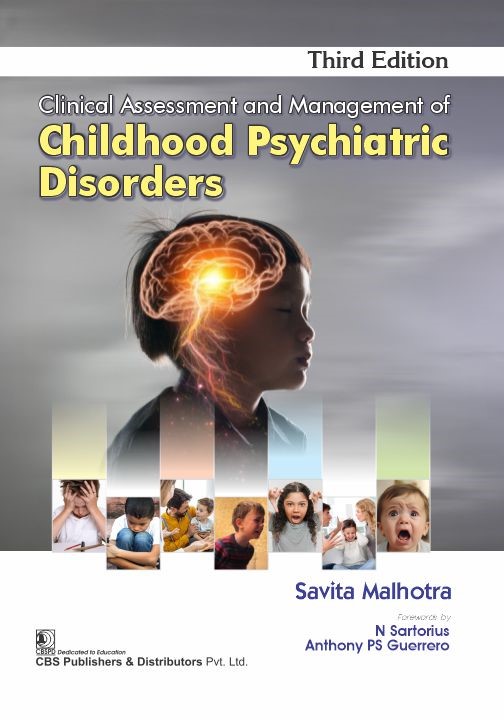Master the Clinical Assessment and Management of Childhood Psychiatric Disorders
Understanding childhood psychiatric disorders is crucial for healthcare professionals who work with children. The Clinical Assessment and Management of Childhood Psychiatric Disorders course is a comprehensive program designed to equip clinicians with the knowledge and skills necessary to effectively assess and manage mental health conditions in children and adolescents. This course offers a deep dive into the complexities of childhood psychiatric disorders, providing practical tools that can be applied directly in clinical practice.
What is the Clinical Assessment and Management of Childhood Psychiatric Disorders?
The Clinical Assessment and Management of Childhood Psychiatric Disorders course is a specialized program aimed at providing healthcare providers—such as pediatricians, psychologists, psychiatrists, and social workers—with an in-depth understanding of the challenges involved in diagnosing and treating psychiatric disorders in children. The course focuses on evidence-based assessment techniques, treatment modalities, and the latest research on childhood mental health.
Why Should You Take This Course?
Comprehensive Understanding of Childhood Psychiatric Disorders This course offers a thorough exploration of the most common childhood psychiatric disorders, including ADHD, autism spectrum disorders, anxiety, depression, and more. By understanding the clinical presentation, diagnostic criteria, and evidence-based management strategies, you will be better prepared to provide effective care for young patients.
Evidence-Based Assessment Techniques Learn how to conduct accurate and reliable assessments of childhood psychiatric conditions using the latest tools and methodologies. The course covers a wide range of assessment approaches, from structured interviews to psychometric testing, ensuring you have a well-rounded skillset to evaluate the mental health of children and adolescents.
Practical Treatment Strategies Beyond diagnosis, the course delves into the most effective treatment options for childhood psychiatric disorders. From pharmacological interventions to psychotherapy techniques, you'll gain insight into the most current and effective approaches for managing childhood mental health conditions.
Improve Patient Outcomes As a healthcare provider, your primary goal is to ensure the well-being of your patients. By mastering the skills taught in this course, you'll be able to deliver better care, improve patient outcomes, and help children lead healthier, more fulfilling lives.
Key Benefits of the Clinical Assessment and Management of Childhood Psychiatric Disorders Book
Expert-Led Instruction: Learn from experienced professionals who specialize in childhood psychiatry and mental health.
Updated Content: Stay informed about the latest research and advancements in childhood psychiatric disorders.
Practical Application: Apply what you learn directly to your clinical practice, improving your effectiveness as a healthcare provider.
Flexible Learning: Study at your own pace with easy access to course materials, enabling you to fit learning into your busy schedule.
Who Should Take This Course?
The Clinical Assessment and Management of Childhood Psychiatric Disorders course is ideal for:
Pediatricians and General Practitioners who frequently see children with mental health concerns.
Psychiatrists and Psychologists who specialize in child and adolescent mental health.
Mental Health Professionals seeking to expand their knowledge in treating childhood psychiatric disorders.
Social Workers and Counselors working with children in clinical or educational settings.
Why Childhood Psychiatric Disorder Knowledge Is Crucial for Healthcare Providers
Childhood psychiatric disorders are on the rise, and healthcare providers must be equipped with the right tools to diagnose and manage these conditions effectively. Early intervention can make a significant difference in a child's mental health, helping to prevent long-term psychological problems. This course helps ensure that you’re ready to offer the best possible care for your young patients.
Course Overview: What You Will Learn
The types of childhood psychiatric disorders (e.g., ADHD, autism, depression, anxiety, conduct disorders)
Key assessment methods including psychological testing, clinical interviews, and behavioral observation
Evidence-based treatment options such as cognitive-behavioral therapy (CBT), pharmacotherapy, and family therapy
Strategies for early diagnosis and prevention of mental health issues in children
Managing complex cases of co-occurring psychiatric disorders in children and adolescents
Conclusion
If you work in pediatric healthcare or child mental health, gaining expertise in the Clinical Assessment and Management of Childhood Psychiatric Disorders is vital. The knowledge and skills gained from this course will enhance your ability to effectively diagnose and treat psychiatric conditions in children, improving outcomes and providing children with the mental health support they need to thrive.
Enroll today and take the next step toward becoming a more knowledgeable and confident healthcare provider in the field of childhood psychiatry.
Table of Contents 1. Introduction to the Principles and Practice of Glaucoma Book 2. What is the Modern System of Ophthalmology Series? 3. Features of the Principles and Practice of Glaucoma 4. Key Topics Covered in the Book 5. Why This Book is Essential for Ophthalmology Students and Professionals 6. FAQs About the Principles and Practice of Glaucoma Book 7. How to Access Digital Content for This Book 1. Introduction to the Principles and Practice of Glaucoma Book If you're pursuing ophthalmology or specializing in glaucoma treatment, the "Principles and Practice of Glaucoma" from the Modern System of Ophthalmology (MSO) series is a must-read. Authored by experts in the field, this book offers an in-depth understanding of glaucoma diagnosis, management, and advanced surgical techniques. This guide is part of a trusted series that has been a cornerstone for ophthalmology education worldwide. 2. What is the Modern System of Ophthalmology Series? The Modern System of Opht...

Comments
Post a Comment